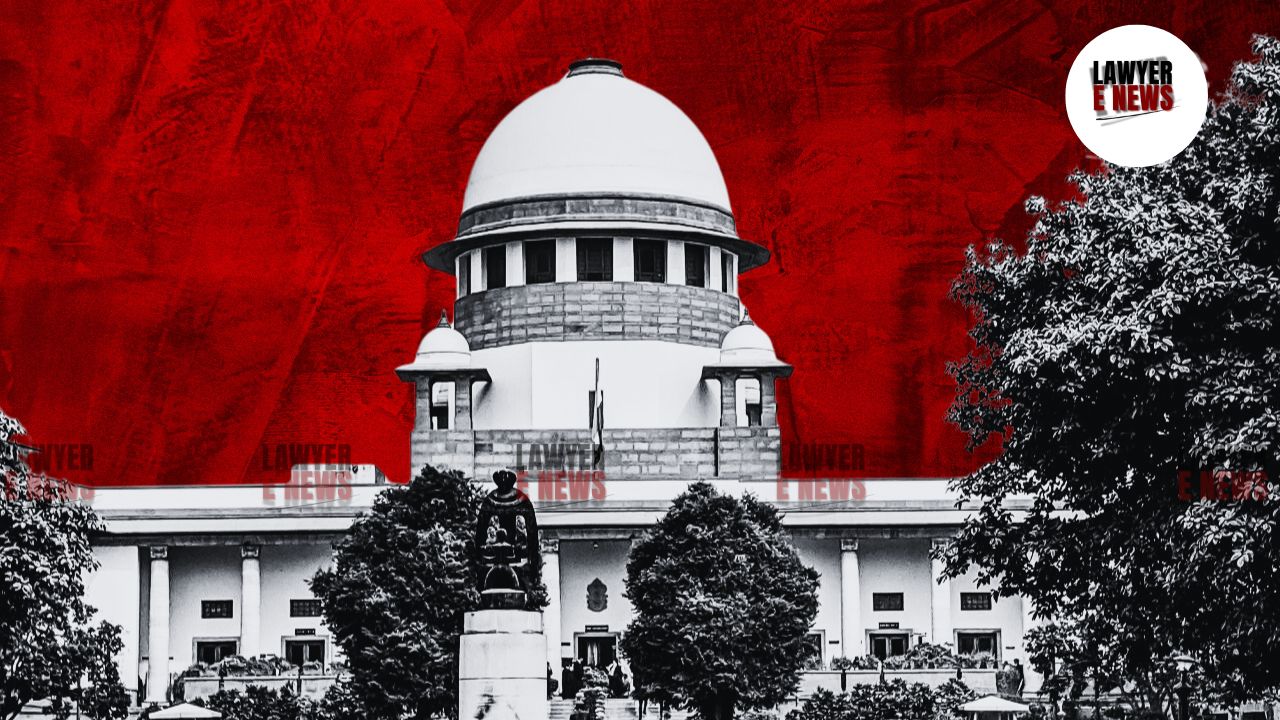-
by Admin
15 February 2026 2:36 AM



Supreme Court of India set aside an ex-parte decree and restored the original suit, emphasizing that substantive justice must prevail over procedural technicalities. The Court held that the restoration application under Order IX Rule 13 of the Code of Civil Procedure (CPC), though filed beyond the statutory limitation period, was supported by sufficient explanation, making a separate application for condonation of delay unnecessary.
The bench comprising Justice Vikram Nath and Justice Prasanna B. Varale observed: "Procedural rules are intended to facilitate justice, not to thwart it. A hyper-technical approach, such as insisting on a separate application under Section 5 of the Limitation Act, cannot obstruct access to justice where the delay is bona fide and adequately explained in the restoration application itself."
"Litigants Cannot Be Penalized for Negligence of Counsel"
The Court reiterated the principle that litigants should not suffer due to the negligence or misconduct of their counsel. Referring to its earlier ruling in Rafiq v. Munshilal (1981) 2 SCC 788, the Court stated:
"When a litigant has entrusted their case to a counsel and exercised due diligence, they cannot be penalized for their counsel’s procedural lapses or omissions. Substantive rights must be protected against procedural injustices."
The Court restored the Trial Court’s order allowing the restoration application and directed the suit to be heard on merits.
The case revolved around a dispute over agricultural land where the respondent, Prithvi Raj Singh, sought a declaration of a sale deed as null and void on grounds of fraud. The Trial Court decreed the suit ex-parte on April 11, 1994, as the appellant, Dwarika Prasad, failed to appear.
Dwarika Prasad filed a restoration application under Order IX Rule 13 CPC on October 31, 1994, citing negligence by his previous counsel, who failed to inform him about the proceedings. He claimed to have discovered the ex-parte decree only days before filing the application. The Trial Court allowed the restoration, but the decision was reversed by the Revisional Court, which held that the application was time-barred as it lacked a separate delay condonation plea under Section 5 of the Limitation Act. The High Court upheld the Revisional Court’s decision, leading to the appeal before the Supreme Court.
The Supreme Court delivered a comprehensive judgment addressing the following key issues:
The Court criticized the High Court and Revisional Court for adopting a hyper-technical approach by dismissing the restoration application solely due to the absence of a formal delay condonation application.
The judgment stated: "The restoration application itself contained all the necessary details explaining the delay, including the date of discovery of the ex-parte decree and immediate action taken thereafter. Filing a separate application under Section 5 of the Limitation Act would have been redundant. Procedure is a handmaid of justice and cannot obstruct it."
Citing Bhagmal v. Kunwar Lal (2010) 12 SCC 159, the Court reiterated that when a delay explanation is interlinked with the merits of the restoration plea, no separate condonation application is necessary.
The Court underscored that Dwarika Prasad, being an illiterate and elderly individual, had relied entirely on his previous counsel, who failed to inform him of the proceedings. The Court found the appellant’s conduct bona fide and held that procedural lapses by his counsel should not deprive him of justice.
Quoting Rafiq v. Munshilal, the Court observed: "An innocent litigant should not suffer due to the deliberate omissions, inaction, or negligence of their advocate. Courts must protect substantive justice from being undermined by procedural inefficiencies."
The Court clarified that the limitation period for filing a restoration application begins from the date the party becomes aware of the ex-parte decree. In this case, the appellant discovered the decree on October 27, 1994, and filed the application on October 31, 1994, which was within the permissible time if calculated from the date of knowledge.
The Court stated: "The Trial Court rightly concluded that the delay was adequately explained. The Revisional Court erred in imposing an unnecessary procedural hurdle by insisting on a separate Section 5 application."
The Court emphasized that procedural rules should not be used to deny parties the opportunity to be heard on merits. It stated:
"Access to justice is a fundamental right. Denying a hearing on merits due to procedural technicalities undermines the very purpose of the judicial process. The Trial Court’s approach in allowing the restoration was correct and aligned with the principles of justice."
Supreme Court’s Directions
The Supreme Court allowed the appeal and passed the following directions:
The High Court’s judgment dated May 24, 2022, and the Revisional Court’s order dated February 17, 2004, were set aside.
The Trial Court’s order dated April 29, 2000, restoring the suit, was upheld.
The Trial Court was directed to proceed with the hearing of the suit (O.S. No. 81 of 1988) on merits and endeavor to dispose of the case within one year.
The Supreme Court’s judgment in Dwarika Prasad (D) through LRs v. Prithvi Raj Singh reaffirms the principle that procedural rules are meant to serve justice, not obstruct it. By restoring the suit and setting aside the ex-parte decree, the Court underscored the need to prioritize substantive justice over procedural technicalities, especially when the delay is adequately explained and does not prejudice the opposing party.
Date of Decision: December 20, 2024
